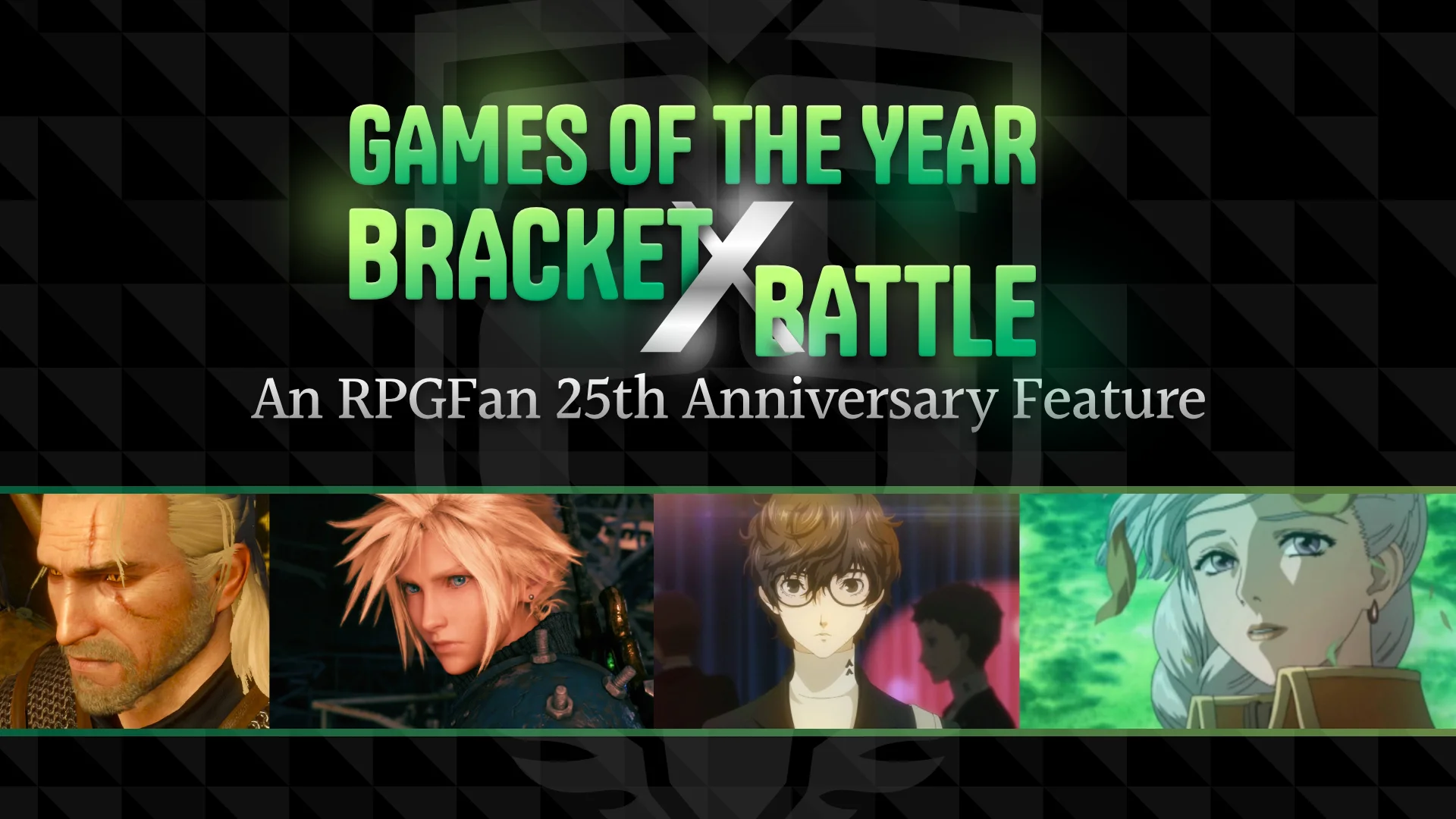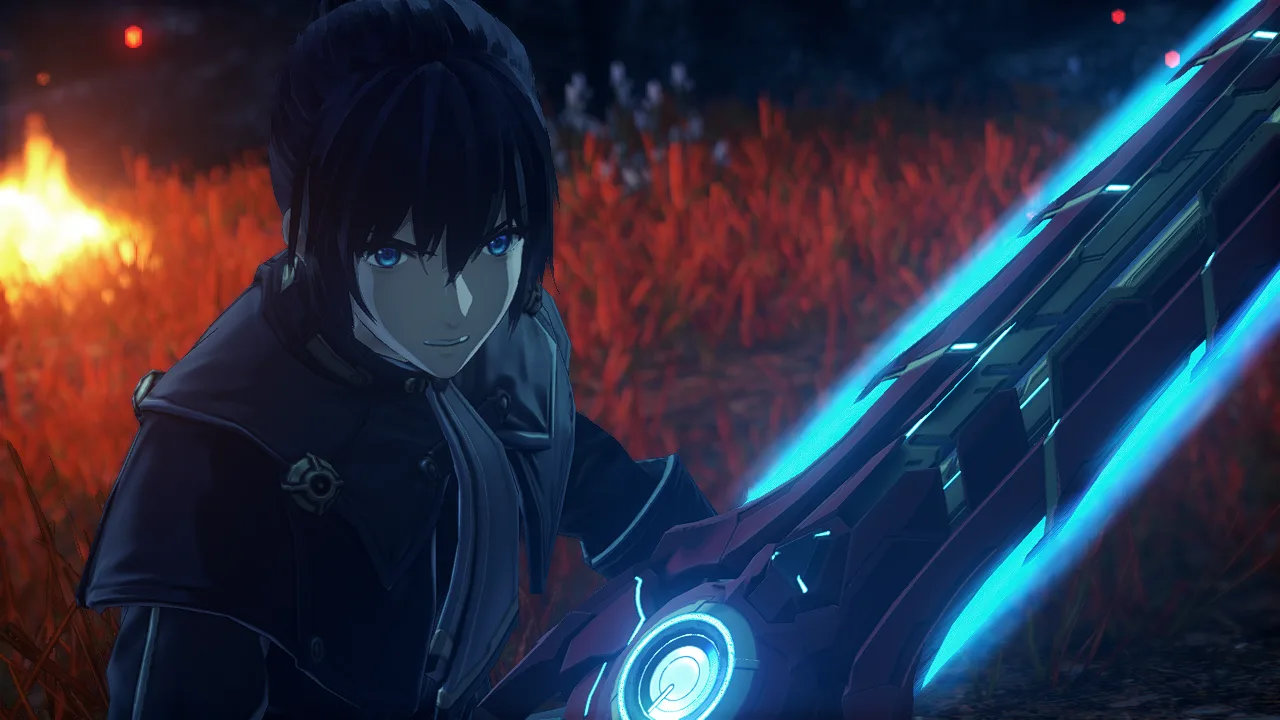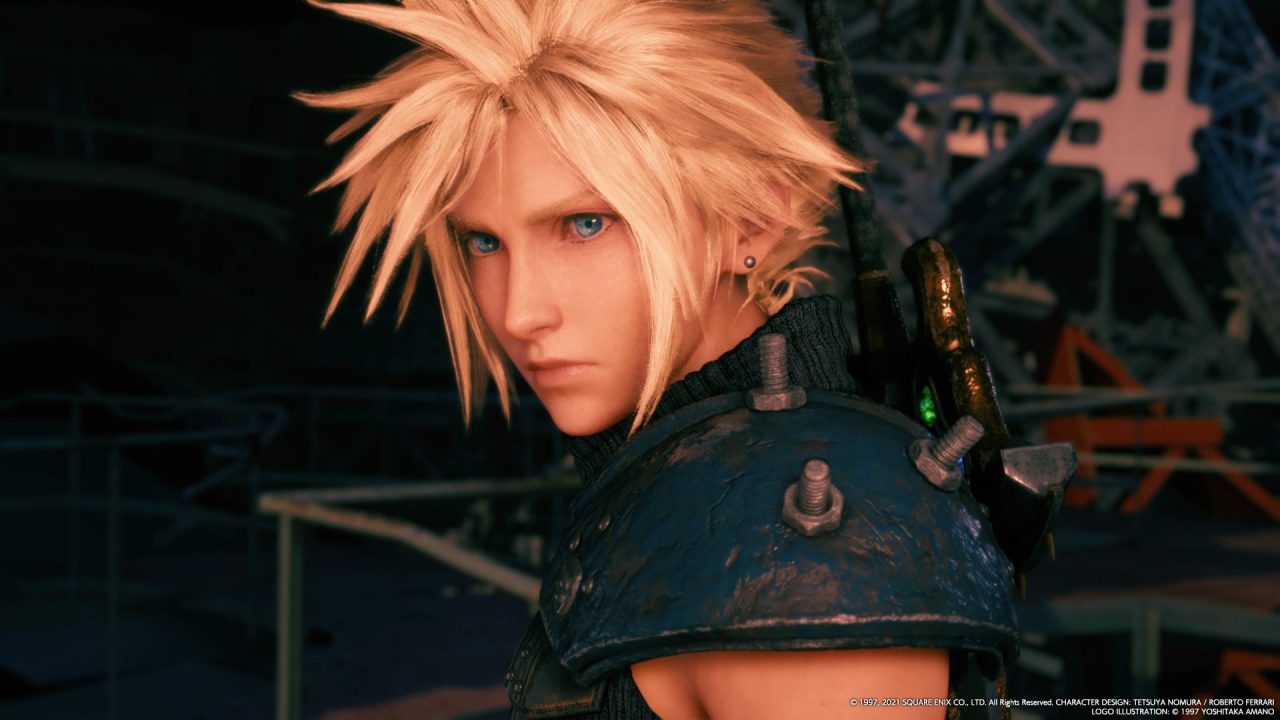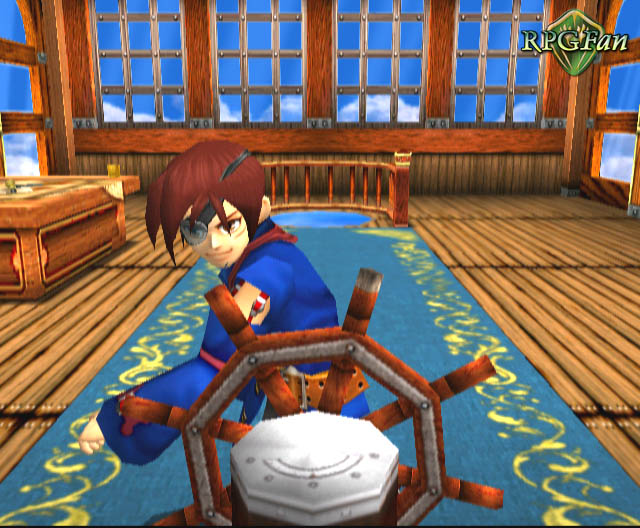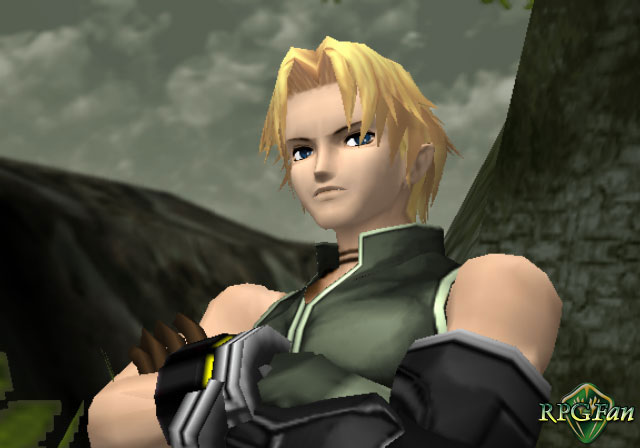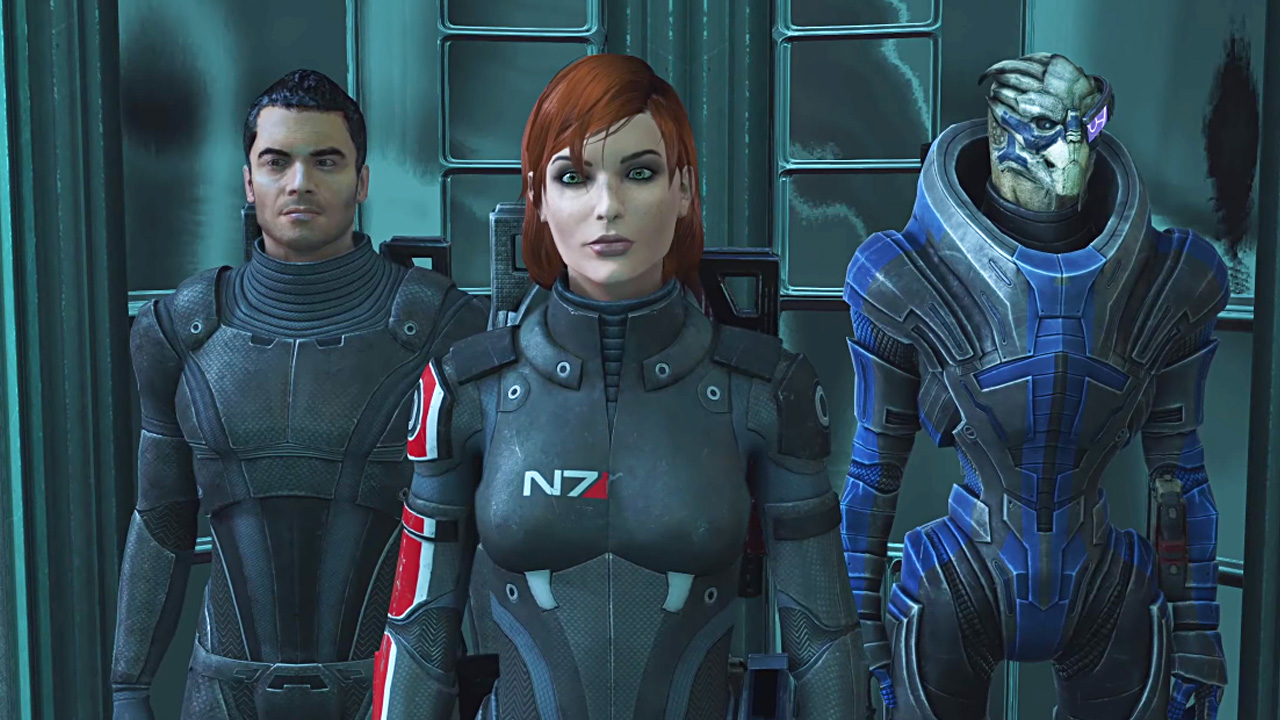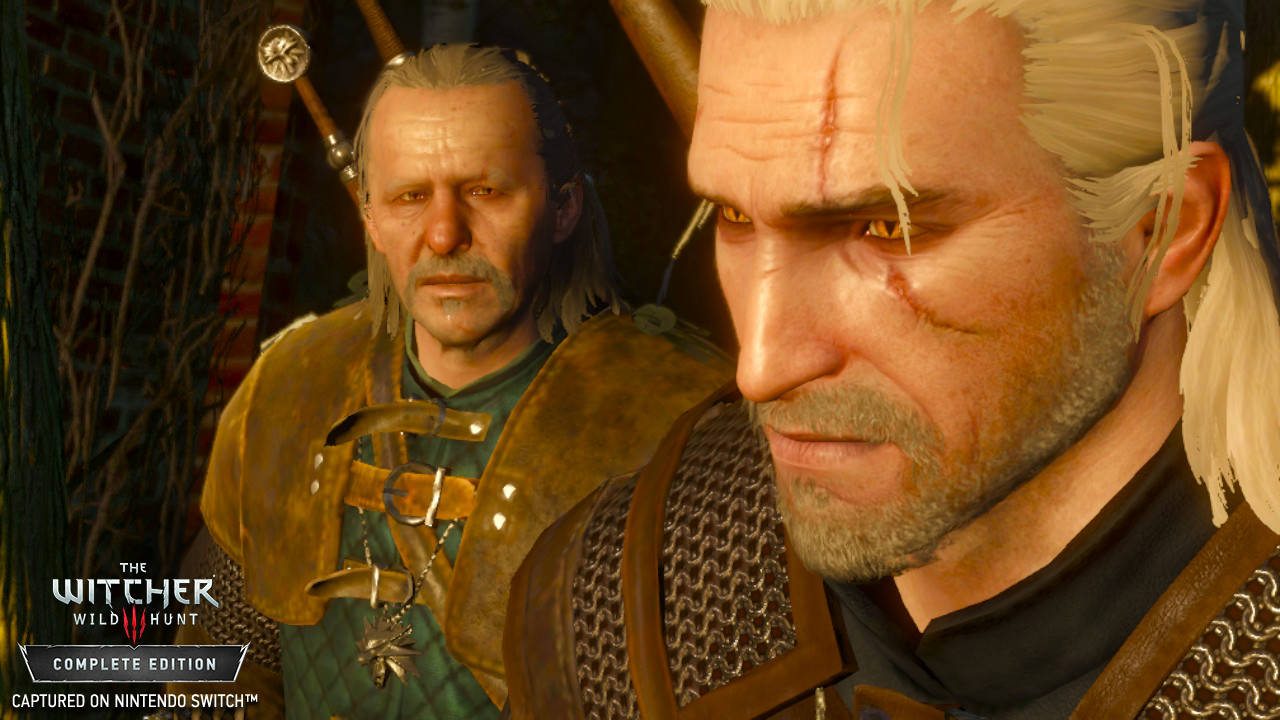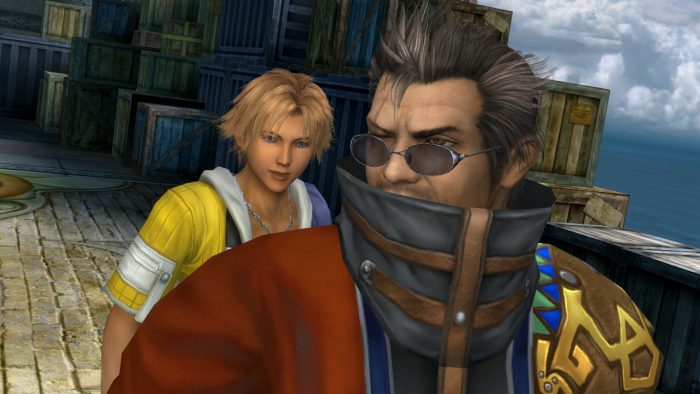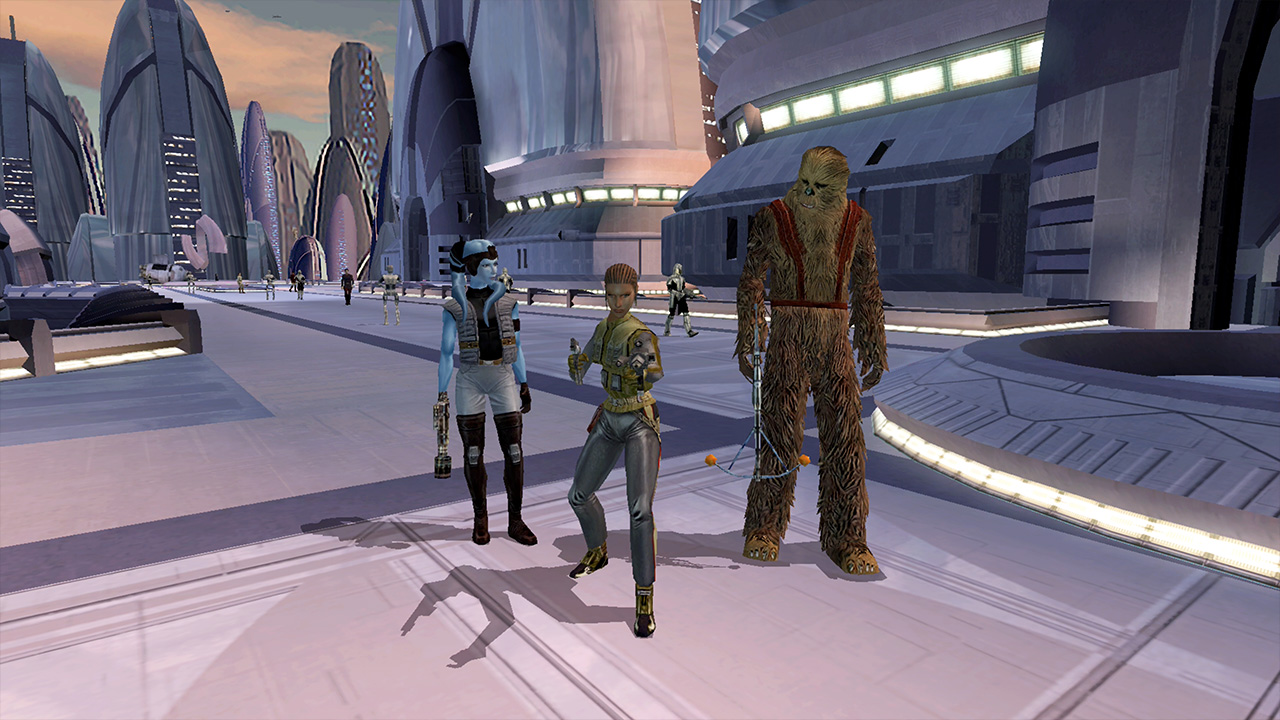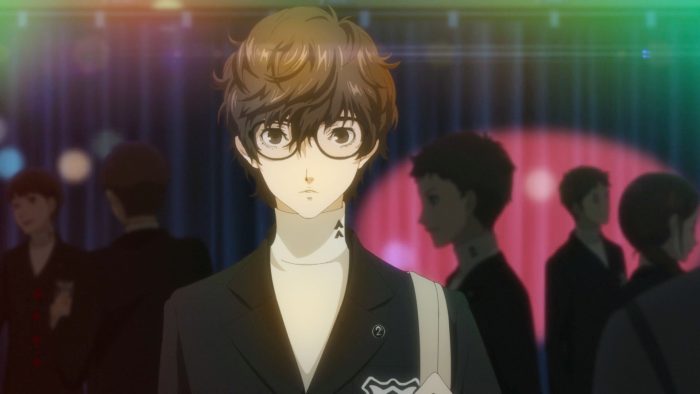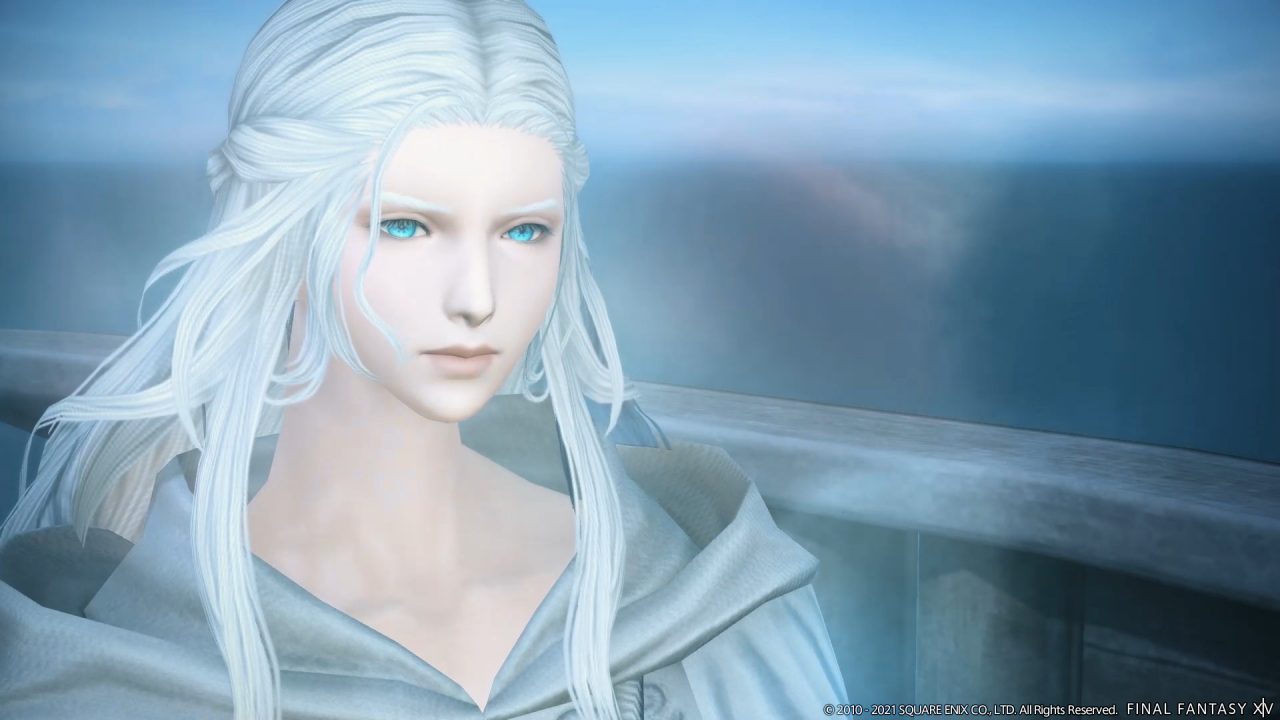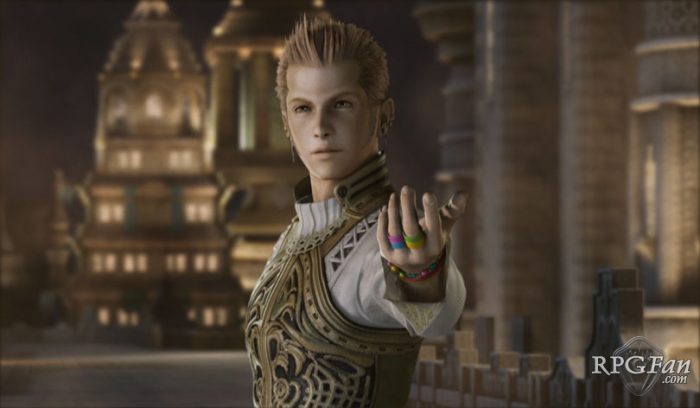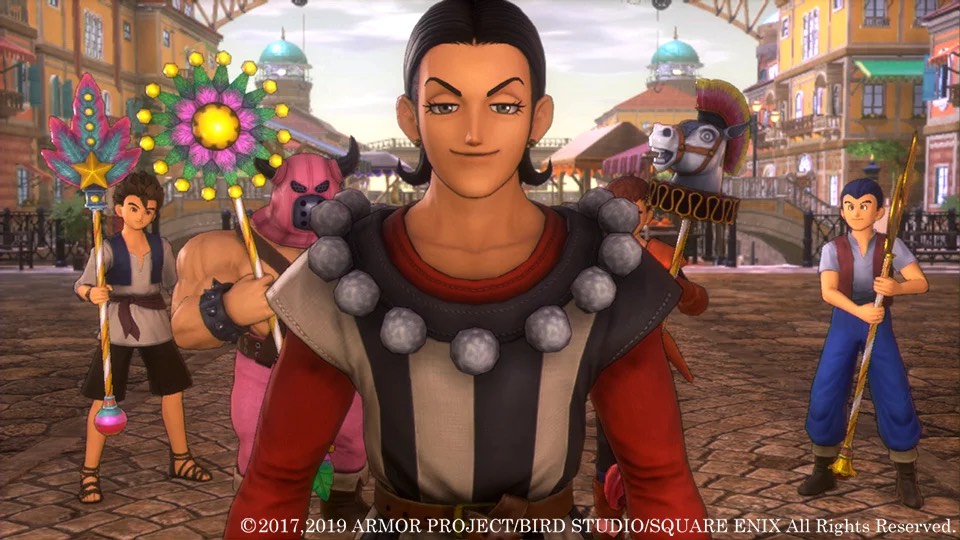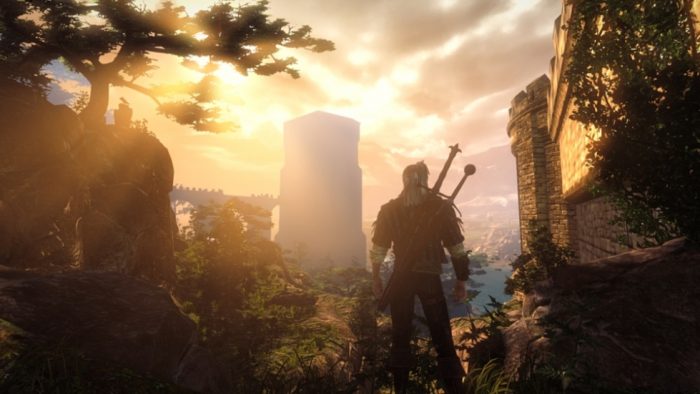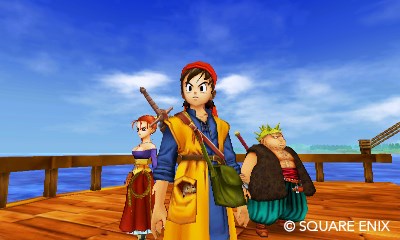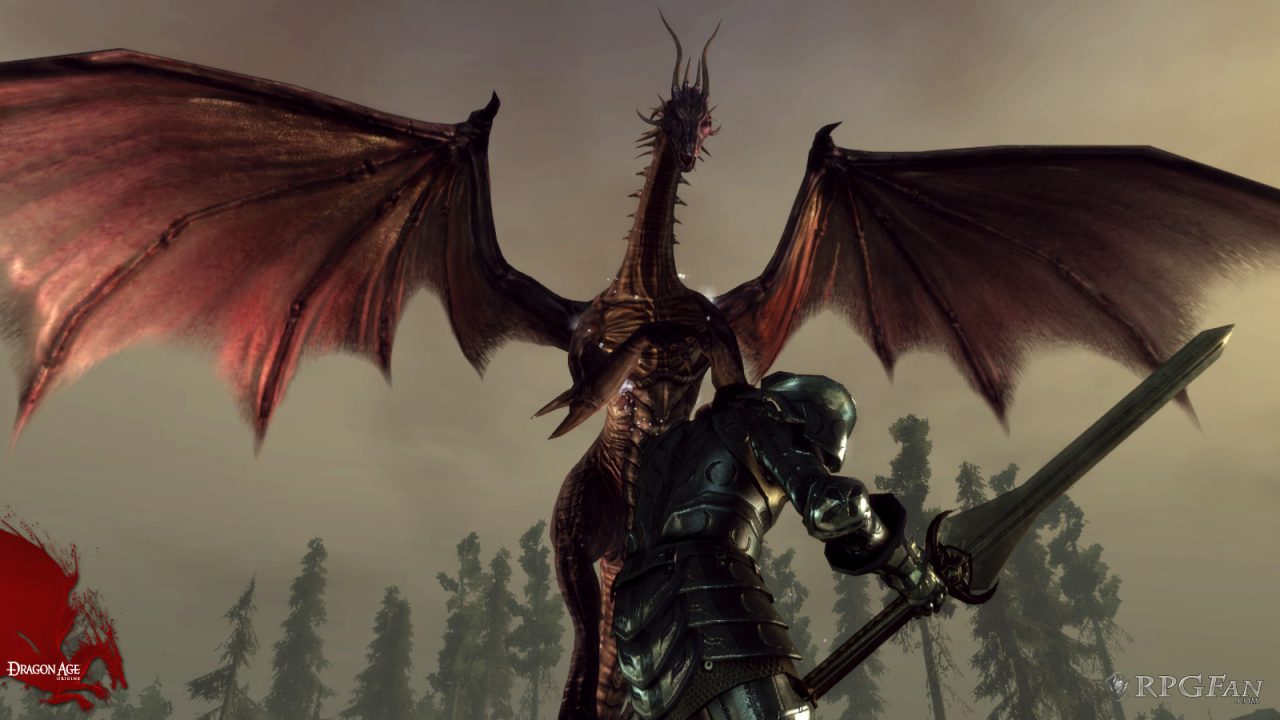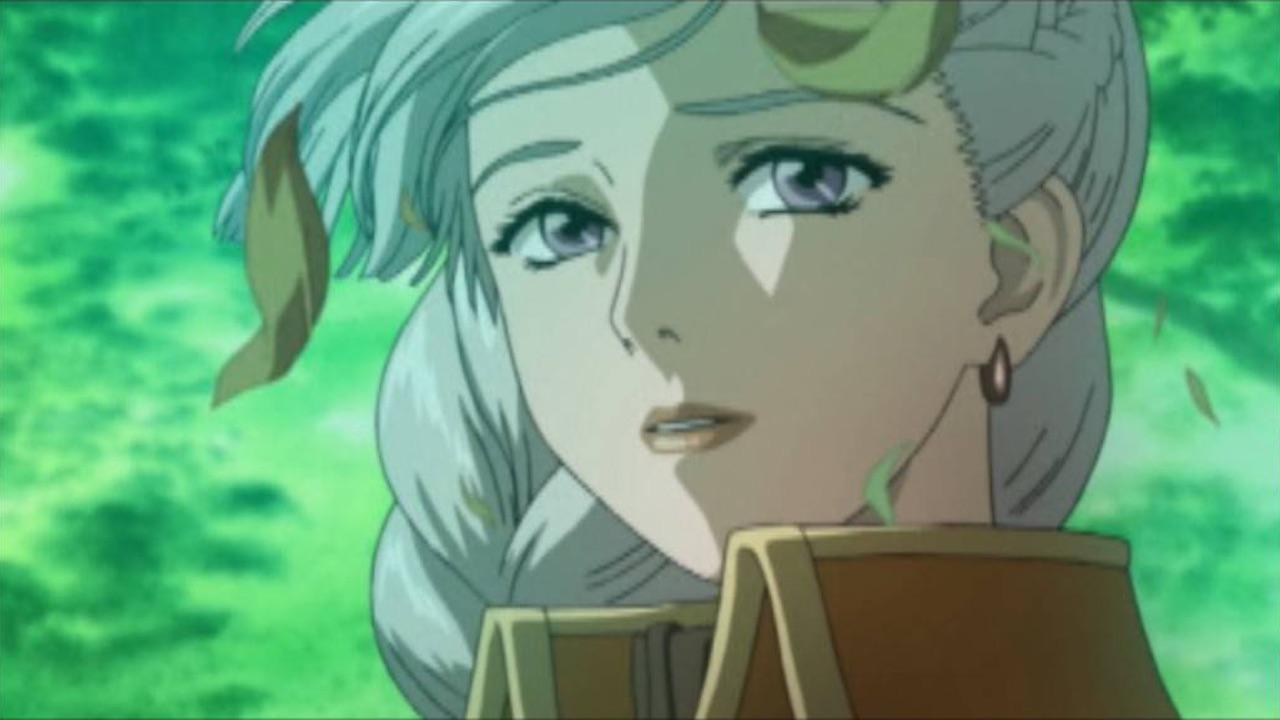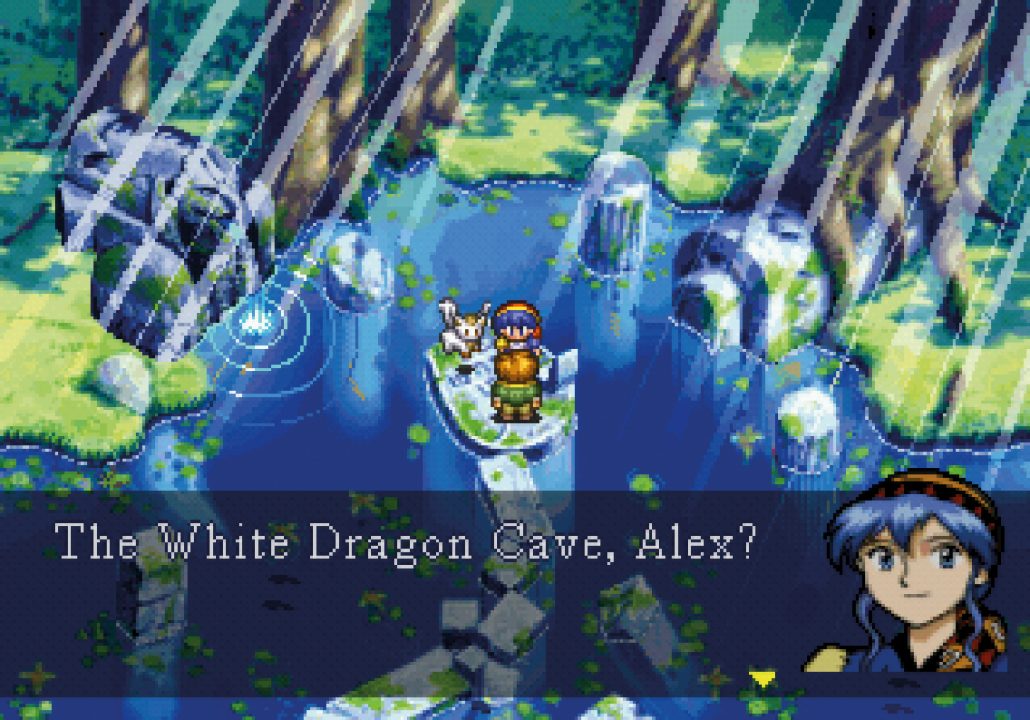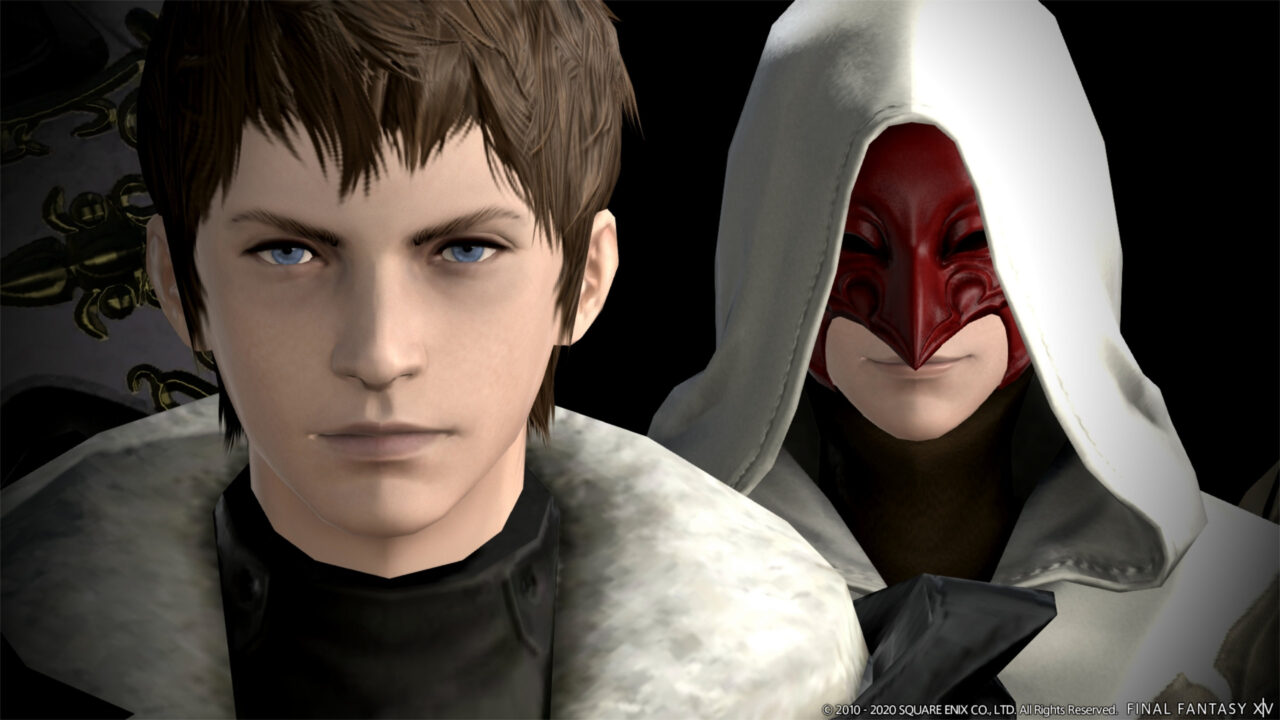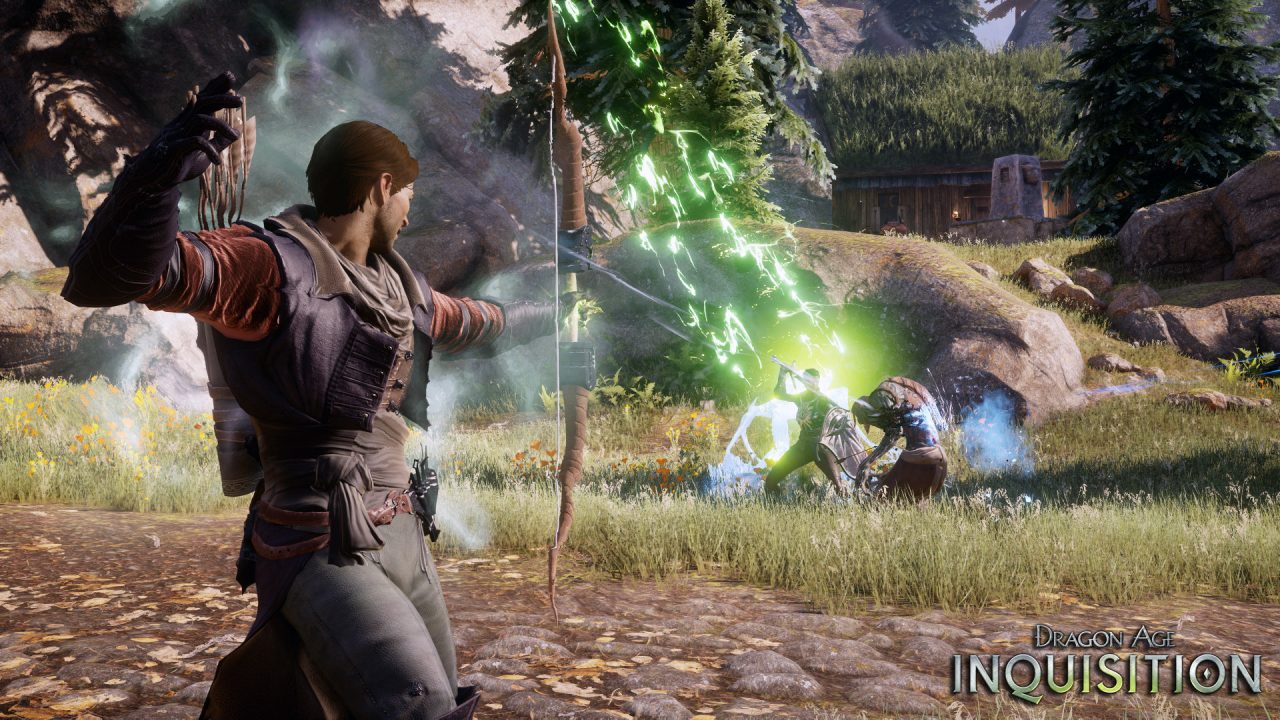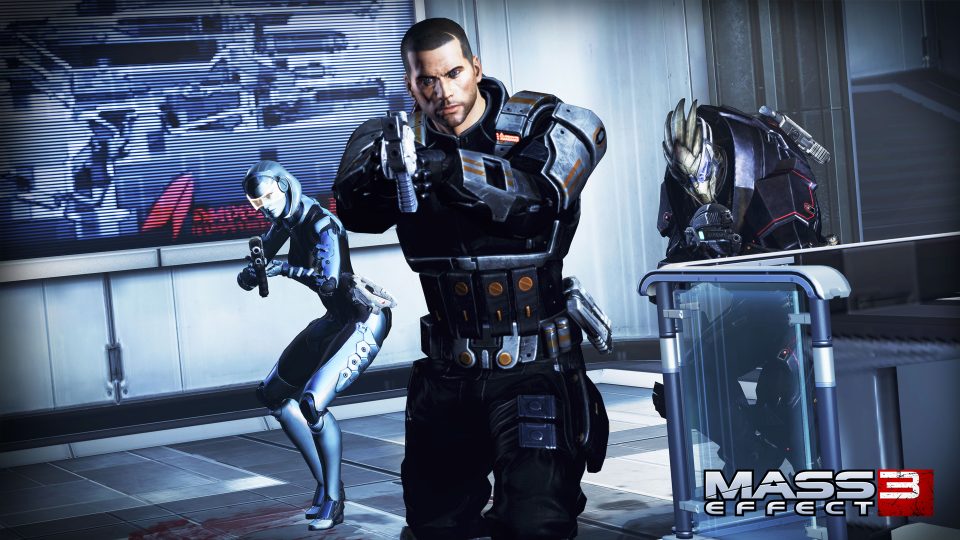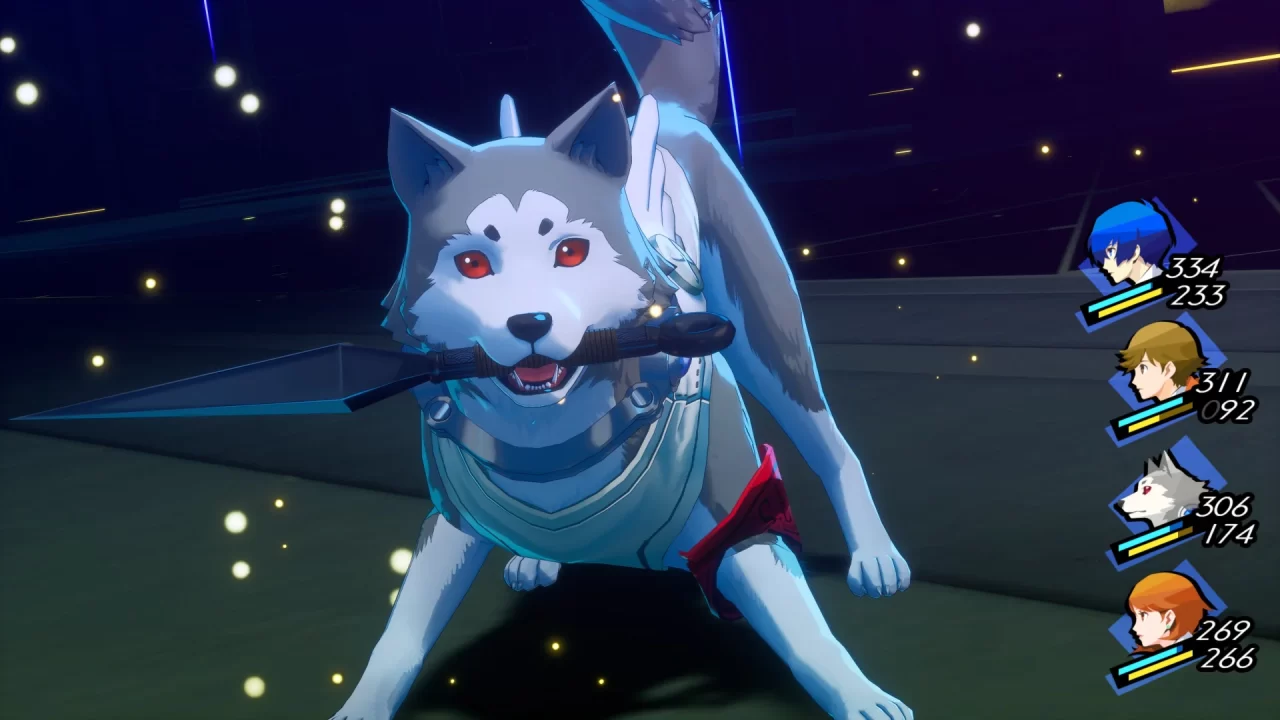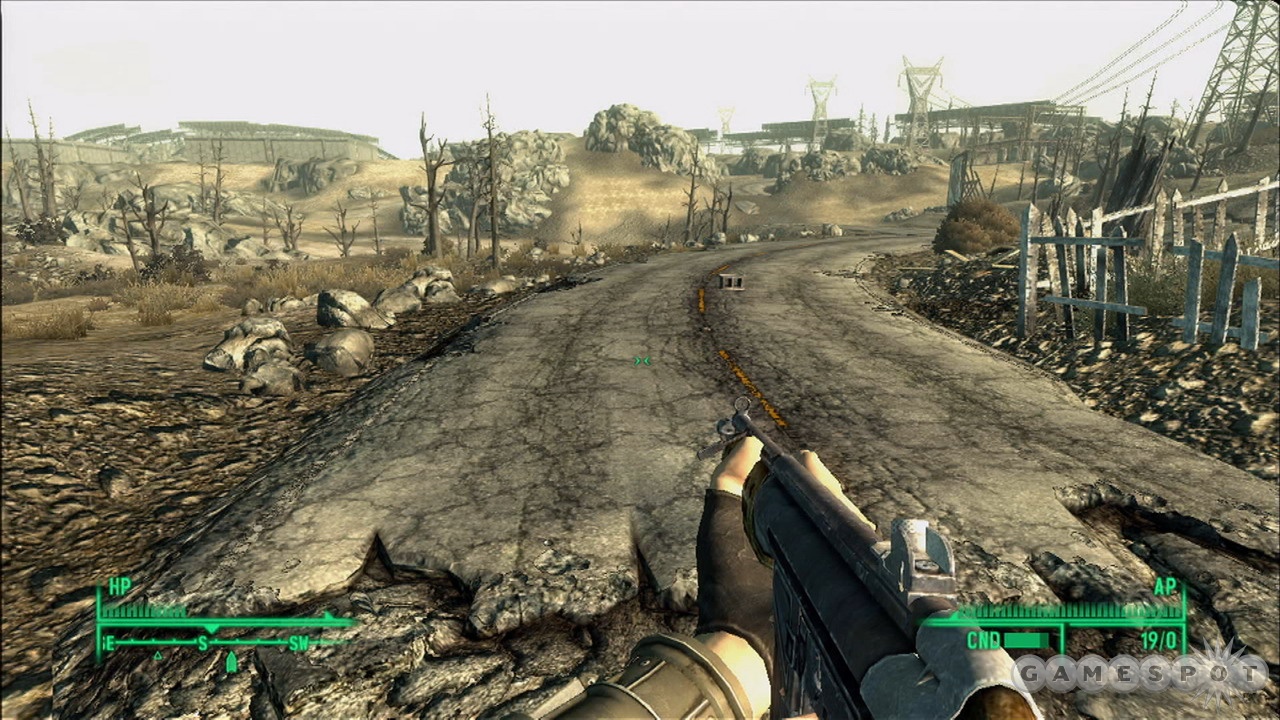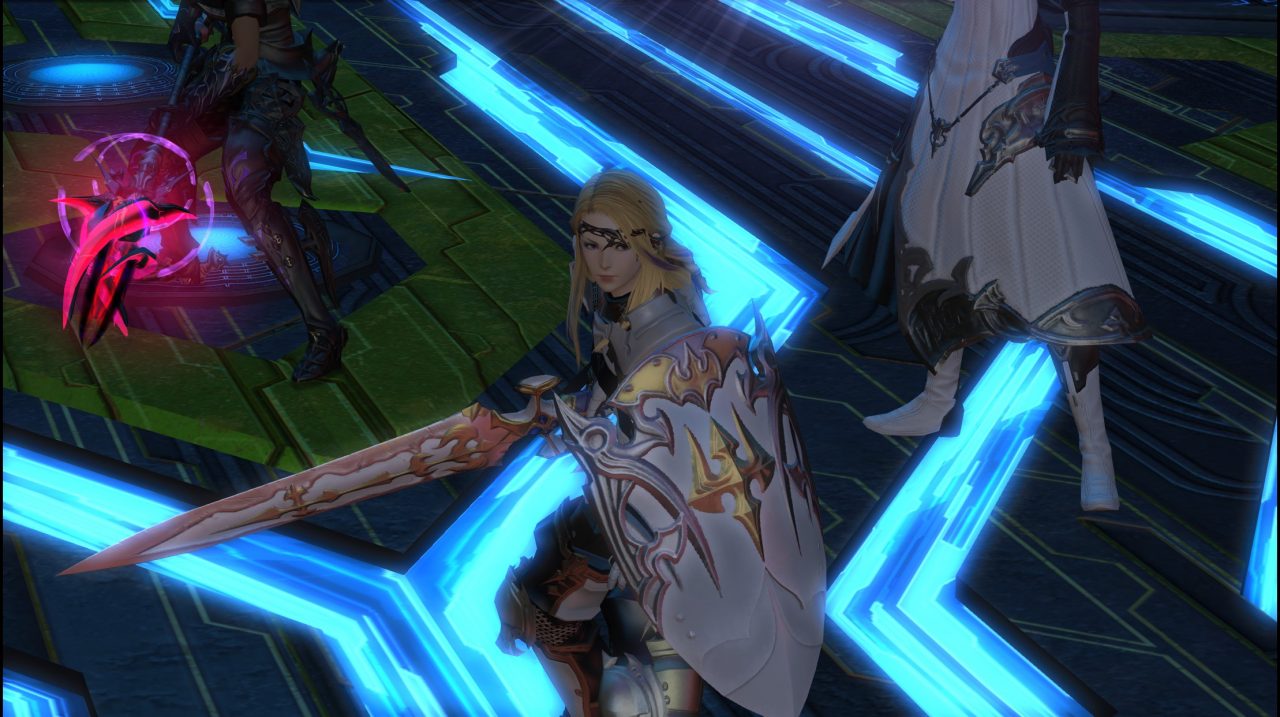Welcome to our newest 25th Anniversary Feature — RPGFan Games of the Year: Bracket Battle!
Okay, so that’s a pretty cool name, but what does it mean?
In honor of our 25th anniversary, we’ve decided to see who our best “Games of the Year” winner is. We’ve been doing Games of the Year in some capacity almost from the beginning, starting in 1999. Thus, we have 24 Games of the Year winners, and they will face off against each other until we eventually pick a winner: the ultimate “GOTY” for RPGFan.
If you’re as familiar with March Madness as I am, you know that 24 is not an even number for a bracket. So, in this first round, we’ve placed every Games of the Year winner in a randomizer, and come up with eight “Divisions,” or matchups of three. There will be just one winner for each division. After this round, we’ll “seed” the games, and the top winning vote-getter will be the “first” seed, and it will face off against the “eighth” seed, lowest vote-getting winner.
But that’s not the most exciting part! We’ve recently integrated a new polling system, and that means that you’re the ones who will vote on the winners here!
That’s right: the winners for each matchup are chosen entirely by you. So, be sure to vote on the matchups to the right there, and after we’ve tabulated the votes we’ll begin our “Elite Eight” matchups!
Voting will end on Wednesday, October 18th at 11:59 PM EDT! So, be sure to get your votes in before then!
Which game do you think will win? Which game deserves to win? Be sure to let us know on Twitter, Facebook, Instagram, Discord, or however you most enjoy interacting with us!
Round 1 voting is now closed! Look for the results soon to vote on Round 2!
Division I
Xenoblade Chronicles 3 (2022)
Writeup by Gio Castillo
Xenoblade Chronicles 3 tells an epic, meaningful tale set against a sprawling setting that’s bursting with history. Its story, elevated by a colorful and well-acted main cast, unfolds perfectly, building to a mid-game twist for the ages.
The game also features intricate battle and gameplay mechanics that reward tinkering around. It is certainly one of the Nintendo Switch’s best-looking games, and its soundtrack contains some of its composers’ (including Yasunori Mitsuda’s) finest work.
Xenoblade Chronicles 3 represents Monolith Soft at the height of its powers. It is the most complete expression of its creator’s vision and should be remembered as a modern classic.
Final Fantasy VII Remake (2020)
Writeup by Peter Triezenberg
After a decade’s worth of teasing and at least one aborted development, Final Fantasy VII Remake finally hit the PlayStation 4 in 2020, and it wasn’t exactly what fans were expecting. The first in a multi-part reimagining of the Final Fantasy VII saga, Remake made a number of bold storytelling decisions that have proven to be polarizing for fans. Whether or not this will pan out in the long run remains to be seen, but it does make Remake a far more interesting release than it could have been.
Where the game unambiguously succeeds, however, is in its characterization, sense of place, and gameplay. Cloud, Tifa, Aerith, Barret, and the rest of the Avalanche crew are phenomenally well-acted and likable characters, with great interpersonal banter that makes you care about their ultimate fates. The city of Midgar feels more alive than ever, with new supporting characters that help to flesh it out. And the real-time combat is a perfect blend of the old ATB style and something along the lines of Kingdom Hearts. Regardless of whether the postmodern experiment that is the Remake series winds up being successful, they will be extremely enjoyable games to play if nothing else.
Skies of Arcadia (2000)
Writeup by Wes Iliff
Skies of Arcadia is a wholly unique RPG and one that nobody has successfully imitated since. Sure, there are plenty of elements of the comfortable, familiar RPG, but it’s also got ship battles, crew recruitment, discovering lost islands and artifacts, and so much more. It doesn’t hurt that it features a well-told story, marrying a traditional RPG plotline with a unique setting and a host of unique characters.
Battle mechanics are no slouch either, with spells, special attacks, and elemental weapons you can change on the fly, giving you a healthy dose of resource management and preparation for every battle.
And lest we forget, the package also comes with battle themes that dynamically change based on how you’re doing and flashback story sequences told through beautiful still art, making the story a joy to behold and the world a treat to explore. Skies of Arcadia is a must-play.
Division II
Star Ocean: Till the End of Time (2004)
Writeup by Ben Love
Star Ocean: Till the End of Time is a divisive game, to say the least. Tri-Ace’s third entry in the acclaimed Star Ocean series was the first fully 3D entry and brought with it a host of gameplay improvements. The combat is fast and fluid, refining the action RPG system of the previous game with the inclusion of the addictive Bonus Battle mechanic that offers big rewards for engaging in repeated battles. The story follows protagonists Fayt Leingod and Sophia Esteed fleeing their home planet after an unprovoked alien invasion. Like any good Star Ocean title, the pair crash lands on an underdeveloped, swords-and-sorcery planet. What’s not typical is how the story proceeds, concluding with a controversial twist that turns the universe on its head. While fan reaction to this twist was mixed, Tri-Ace’s bold narrative decision and willingness to subvert player expectations have kept Till the End of Time in conversation nearly 20 years later.
Mass Effect 2 (2010)
Writeup by Abe Kobylanski
Mass Effect 2 arguably represents the best in BioWare’s vault. The sequel to Mass Effect continues the original’s story but irons out the gameplay wonkiness that held the original back with simpler and sharper combat. Epic introductions and reintroductions of characters make it clear the N7 is back in business when it comes to hunting Reapers. NPCs you helped in the previous game return to show how your past actions have shaped the present. The fascinating universe filled with original alien races continues on as the threat of the Reapers grows ever closer. And if you appreciate being able to romance your party members, Mass Effect 2 provided unprecedented freedom to do so. The Mass Effect series nearly single-handedly made the Xbox 360 worth owning if you were into RPGs. It’s space opera at its finest, and the second entry is the sweet spot.
The Witcher 3: The Wild Hunt (2015)
Writeup by Bob Richardson
Literally considered Game of the Decade by multiple media outlets, The Witcher 3: The Wild Hunt proves that open-world games needn’t be vacant, barren landscapes. Aside from being chock-full of fascinating side quests and outstanding voice acting, Geralt’s third romp in the trilogy puts a cap on demons nipping at his heels–sometimes literally–and sorceresses in distress in elegant, high fantasy fashion. And if that isn’t enough, the visuals and music hold up to date, even without the PC facelift it recently received. Continue the story with two exceptional DLC releases that add substantial content in both quality and quantity, and Witcher 3 is a title not only worthy of Game of the Decade but perhaps even Game of Our Lifetime.
Division III
Final Fantasy X (2001)
Writeup by Sam-James Gordon
Final Fantasy X was an outright standard-setter of the 2001 RPG landscape. Not only was it the first time a series entry had been beautifully rendered in full 3D, it was also the first time we got voice acting. However, it’s not the “firsts” that count; we’ve all done something for the first time and it went horribly wrong. It’s that Square Enix absolutely nailed every aspect of the game. From its visuals and audio to its gameplay design and story, Final Fantasy’s maiden voyage on the PS2 has aged remarkably well.
There are memorable moments aplenty in Final Fantasy X, such as the first time we saw Anima at the tournament in Kilika or the devastatingly beautiful jaunt through Zanarkand, and (of course) the game’s similarly emotionally traumatising ending. The story of Final Fantasy X was first and foremost driven by its characters, and what a memorable cast they are.
Star Wars: Knights of the Old Republic (2003)
Writeup by Greg Delmage
Generations have been captivated by Star Wars and the planets, peoples, ships, creatures, and more in that fantastical universe, and Knights of the Old Republic (KotOR) finally offered fans the chance to explore a small piece of that galaxy. Star-faring through a never-before-seen era of the lore, players took in several exciting new locales along with the familiar that were stunning on the hardware of the time. What’s more, characters could indulge in life as a scoundrel like Han Solo, a soldier like some of the Rebellion’s finest, or a scout like the legendary Wicket before finally fulfilling the fantasy of being a Jedi. Building on that, how players handled individual circumstances had a bearing both on their story and their place within the Light or Dark Side of the Force, governing the powers they could access. Supported by a great cast that filled out the tale and added to the fantastic gameplay, players hurtled along through an engaging, well-crafted adventure foretelling the fate of the galaxy far, far away as George Lucas created it.
Persona 5 (2017)
Writeup by Audra Bowling
Persona 5 is a visually stunning game with a uniquely stylized and vibrant UI that many games have since emulated. Anime cutscenes and character designs are gorgeous to behold, and the title makes surprisingly thoughtful commentary throughout its long playtime. Realistically developed characters, themed dungeons, and memorably catchy music all help Persona 5 and its subsequent offshoot titles stand out from the crowd, making for an entertaining and compelling RPG experience that oozes artistic style!
Division IV
Final Fantasy XIV: Endwalker (2021)
Writeup by Zach Wilkerson
As the culmination of almost ten years of storytelling, Final Fantasy XIV: Endwalker pulls off the almost impossible: it tops everything that came before. This is no small task since Heavensward and Shadowbringers are both amazing. But, by smartly following all the characters we’ve come to know and love, answering questions we’ve had for years, and introducing some of the best characters in the history of the series, the story more than pays off our long investment. What’s most remarkable about the story is how deeply it understands its characters and how they, and the player as a result, stare the inevitable in the face and find a way to move forward despite it all.
The fact that Endwalker provides the most refined gameplay in the series is just the cherry on top of one of the best stories told in video games, and it’s truly a masterpiece.
Final Fantasy XV (2016)
Writeup by Aleks Franiczek
Time has been kind to Final Fantasy XV. It’s made it easier to see past the game’s often clunky combat and storytelling and appreciate the (still) unreplicated novelty of its road trip vibes and vibrantly expressive AI party members. My journey through FFXV always felt like my own as a result, a feeling cleverly supported through Prompto’s growing photo album as he documented my progression through the game. Days were for adventuring and banter (and fishing). Nights were for cozy refuge, delicious-looking meals, and reflecting over pics from the day. There’s a natural ebb and flow to this cycle that makes even the game’s blandly written side quests feel meaningful. While certainly not the most flawless RPG, FFXV felt more like a lived experience than almost any other I’ve played. A vote for this game is a vote for creativity over polish. For genuinely fresh ideas over never-ending iteration.
Final Fantasy XII (2006)
Writeup by Audra Bowling
Final Fantasy XII is a story rife with political machinations, the horrific outcomes of war, and moral ambiguity aplenty. Ivalice is a fleshed-out, fully realized world that players can explore to their hearts’ content. The Gambit combat system can be incredibly intuitive and entertaining once you get the hang of it. There are insightful and heartfelt moments throughout its grand narrative, and more than a few you might come to cheer at thanks to poignant character developments. Plus, it has gorgeous graphics and a beautiful, immersive soundtrack. Final Fantasy XII is one atmospheric adventure that shouldn’t be missed!
Division V
Dragon Quest XI: Echoes of an Elusive Age (2018)
Writeup by Wes Iliff
Dragon Quest XI takes the formula that made the series an institution in Japan and delivers it in the most tantalizing package yet, making it the definitive entry point into a truly legendary series. The visuals bring Akira Toriyama’s iconic character designs to life, the gameplay features just enough wrinkles to feel engaging without giving up the simplicity the series thrives on, and the story exists on an epic scale that simply screams, “Adventure ahead!”
DQXI doesn’t try to push the genre toward innovation. Instead, it’s about delivering the most refined version of a tried-and-true formula with a blockbuster budget and a more character-driven story than we often see from the series. There’s plenty of meat for the hardcore players, but what Dragon Quest XI truly brings is the promise of the entire series: an RPG anyone can enjoy.
The Witcher 2: Assassins of Kings (2011)
Writeup by Jimmy Turner
Witcher 3 gets a ton of credit for its impact on the video game landscape (as it should). However, without the successes of its predecessor—Witcher 2: Assassins of Kings—Witcher 3 may not have been such a juggernaut. CD Projekt Red’s second game in the franchise significantly improved upon the original in nearly every way, and it is clear to see elements in Witcher 2 that carry over into the third installment.
Witcher 2 was purely and simply ahead of its time. The game does not hold your hand and grants the freedom to make mistakes and learn from them. Choices that alter the plot, solid action combat, memorable characters, unique enemies, and mature content that The Witcher is known for are all present. For a game released in 2011, it still holds up graphically under a modern microscope as well.
Dragon Quest VIII (2005)
Writeup by Sam-James Gordon
Dragon Quest VIII for the PS2 was the first time the series saw a big push in the West. While many of the preceding Dragon Quest games had seen localisations for the US market, VIII was the first brought to PAL territories such as Europe and Australia. This global shift saw the game receiving some special treatment for its Western release: the soundtrack got fully re-recorded with an orchestra, and voice acting was added to cutscenes. These changes helped emphasise Dragon Quest VIII’s other state-of-the-art features, such as fully 3D stylised graphics, open area maps, compelling story, and engaging character progression. Despite Akira Toriyama’s artwork being a staple of the Dragon Quest series since its inception, VIII’s 3D graphics were the first time the series saw his characters so closely interpreted in 3D models. The game had plenty of oomph, one might say.
Division VI
Dragon Age: Origins (2009)
Writeup by Jimmy Turner
Does it get any better than 2000s BioWare? I mean, come on: Neverwinter Nights, Star Wars: Knights of the Old Republic, Jade Empire, Mass Effect, and closing out the decade was the fantasy epic Dragon Age: Origins. All these games have a special place in my heart, but Dragon Age may be the preeminent game of the bunch.
Dragon Age marked the first entry into BioWare’s own dark fantasy world of Thedas. With six unique origin tales to choose from, players assume the role of a Grey Warden to combat the threat from the Darkspawn and the Archdemon that leads them on a path of destruction. The game established memorable characters including series constants Morrigan and Alistair, and boasts some of BioWare’s best storytelling. Dragon Age: Origins felt like a culmination of what made those classic BioWare games so great. This, my friends, was BioWare at the height of their powers.
Suikoden III (2002)
Writeup by Michael Sollosi
Three main characters, multiple nations and cultures in conflict, at least five True Runes, and one hundred and eight Stars of Destiny. Suikoden III weaves a layered tapestry of a region at war, with multiple factions trying to either protect their homes, seize political control, or obtain True Runes that have the power to reshape the world. Geddoe, Chris, and Hugo are protagonists with vastly different backgrounds and motivations, but their combined story makes for something special.
Suikoden is a beloved series that hasn’t had any recent entries, but those first three games created a fascinating world full of surprises and intrigue that remains popular to this day. Suikoden III is a worthy follow-up to its legendary predecessors and a gem of the PS2’s loaded RPG library.
Lunar: Silver Star Story Complete (1999)
Writeup by Audra Bowling
Lunar: Silver Star Story Complete is a quintessential RPG classic. It comes replete with memorable characters, phenomenal dialogue, and a fantastic romance as a central theme. And all while telling a compelling fantasy story! Not only that, but it also sets the stage for an engrossing sequel later on that you appreciate all the more for having played this lovely predecessor beforehand. Gorgeous music and beautiful anime-style visuals help to further convey what is truly an amazing traditional RPG experience!
Division VII
Final Fantasy XIV: Shadowbringers (2019)
Writeup by Mike Salbato
In the seventh year of the successful rebooted MMORPG, Final Fantasy XIV: Shadowbringers took the game to new heights by expanding the scope of the game’s world to, well, another world. While the plight of The First was revealed in a prior storyline, that would hardly prepare players for the far-reaching tale that Shadowbringers explores. FFXIV‘s third expansion recontextualized several concepts previously thought etched in stone, introduced fantastic locales and character development, and features some of the best music in Final Fantasy — not just FFXIV — history.
Dragon Age: Inquisition (2014)
Writeup by Sam-James Gordon
Dragon Age: Inquisition, BioWare’s most recent addition to the Dragon Age series, is one of those games that seems to be looked upon more favourably now than it was in 2014. That’s high praise, considering it won our 2014 GotY. The game was quite divisive for straying even further away from the gameplay conventions established in Dragon Age: Origins, but now that action-focused battle systems are becoming more and more predominant, it’s easier to appreciate Inquisition for what it is.
It’s not common practise to see multi-part series carry over branching choices between entries, yet that’s precisely what BioWare accomplished with Dragon Age Keep. This intuitive stroke of design essentially allowed players to input choices they’d made during their playthroughs, circumnavigating the need for save files from old consoles. Dragon Age Inquisition continued the series’ strong narrative and brought new characters and storylines to further develop the rich lore of Thedas.
Mass Effect 3 (2012)
Writeup by Audra Bowling
Mass Effect 3 is the closing point of an incredibly compelling, choice-heavy sci-fi RPG narrative. It might not hit every note perfectly, especially with its heavily debated ending, but this third game still manages to go out swinging. Full of emotional moments developed from earlier games, Mass Effect 3 brings Commander Shepard and the entire galaxy’s fight against the Reapers to an emotional conclusion that stays with you long after finishing the game. Throw in some of the best DLC you’ll ever have the pleasure of playing, and there’s no denying that, thoughts on the ending aside, Mass Effect 3 is a true gaming masterpiece.
Division VIII
Shin Megami Tensei: Persona 3 (2007)
Writeup by Mario Garcia
This is a game where you face mortality and the trauma of coping with death one minute and jam out to bangers like “Mass Destruction” and “When the Moon’s Reaching Out Stars” the next. Shin Megami Tensei: Persona 3 is a highly influential RPG that many consider the starting point of modern Persona games for a reason. Fitting its heartfelt story about loss, grief, and making the most of our time with the people we care about, it established the calendar and social link systems that have become a series mainstay.
It’s got a great cast of characters with fun social interactions, solid combat featuring the Shin Megami Tensei demon pantheon, and an incredible soundtrack spanning a variety of genres, all while oozing style. Persona 3 is a classic, through and through.
Fallout 3 (2008)
Writeup by Jimmy Turner
To say Fallout 3 marked a shift in the series would be an understatement. It was the first Fallout game developed by Bethesda and the first to transition away from the turn-based, 2D isometric design of the previous games. What an amazing experience it was exploring the Capital Wasteland as the Lone Wanderer: battling Super Mutants, wandering through different vaults, collecting Nuka Cola caps and bobbleheads, all en route to tracking down your runaway dad.
Fallout 3 (along with Oblivion) set the standard for Bethesda games going forward. It pushed the boundaries of that generation’s hardware. The winner of numerous Game of the Year awards (deservingly so), it brought the Fallout universe to a mainstream audience and solidified itself in pop culture.
Also, you get a companion dog named Dogmeat. I rest my case.
Final Fantasy XIV: A Realm Reborn (2013)
Writeup by Sam-James Gordon
Did you know the critically acclaimed MMORPG Final Fantasy XIV has an RPGFan Game of the Year award? Several, in fact, but today we’re here to talk about A Realm Reborn.
Back in the halcyon days of 2013, it was unheard of, nay, absurd for a game to start more or less from scratch. Some games go through development hell and take a decade to get released, and others are released and end up being remade to then reign supreme for a decade. A Realm Reborn retained the locations, lore, and established events of Final Fantasy XIV 1.0 while gutting nearly everything else that qualified it as a videogame. This monumental task was helmed by none other than Naoki Yoshida, dubbed by the gods as Yoshi-P, who steered his ship out of treacherous waters and into a future that basked in both critical and commercial success.
Check back soon to see the winners, and don’t forget to vote!

